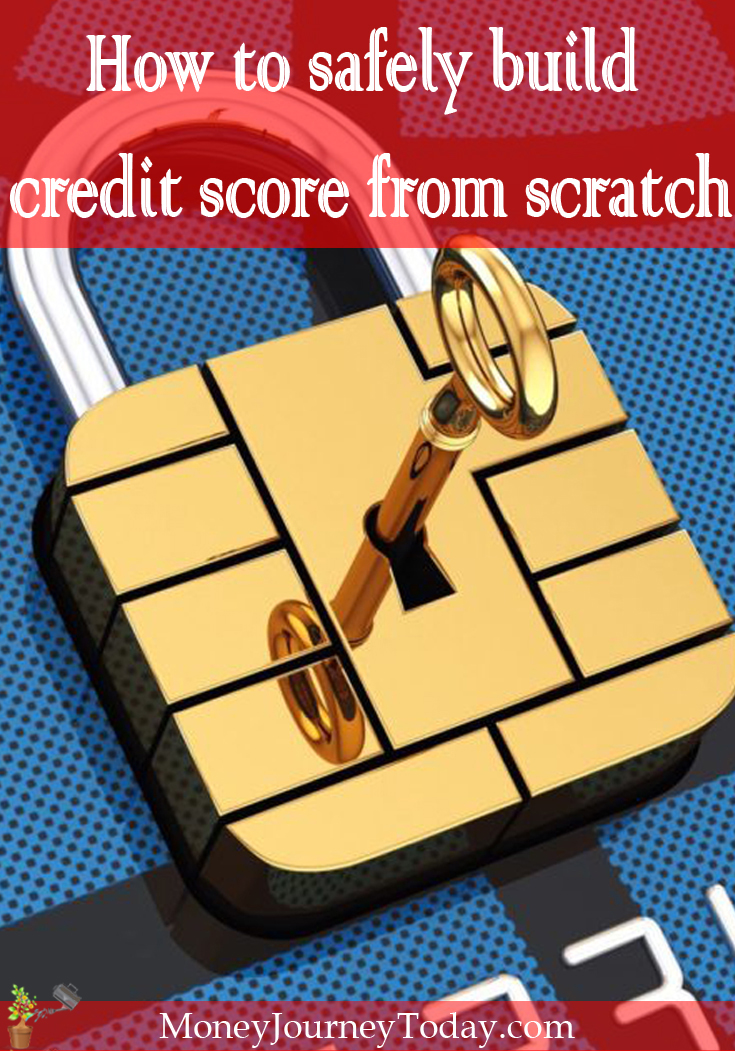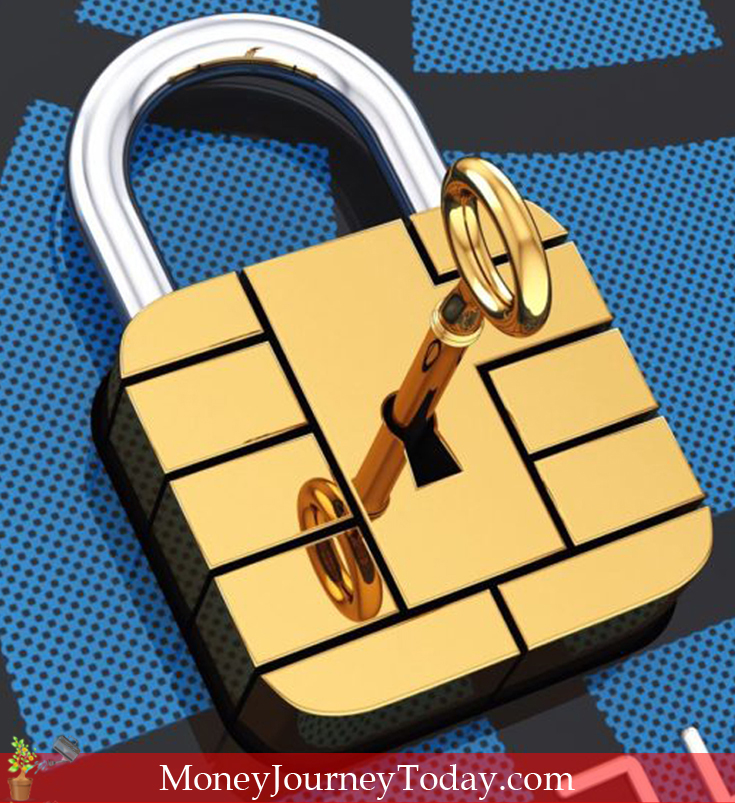If you’ve just stepped into ‘the real world’, you may have realized applying for a credit card, finding rent or even a good job is difficult without a good credit history.
So how do you safely build credit score from scratch?
The never ending dilemma involving a chicken and an egg fighting over which came first is slightly comparable to building credit score for the first time.
You can’t have a credit history if you’re a young adult without a credit record. But you can’t apply for most financial products if you don’t have a good credit score.
In order to build credit score from scratch, you obviously have to start somewhere.
Building exceptional credit takes time and a lifetime of good money habits.
Everyone can get there, by taking one responsible step at a time.
How to safely build credit score from scratch

Check your credit score
It may be confusing, if you’ve never checked your credit score before, but it’s important to know what exactly you’re dealing with.
Fist step into credit adulthood is knowing what your credit “foundation” is before you start building it up. What’s the situation “below ground level”. How strong is your “substructure”. Enough puns, you get the point!
You can request all copies of your credit reports at annual credit report, for free, once a year.
Look them over, check for errors and fix them if necessary. Start building your credit score with a clean slate.
Related article: 10 examples of poor financial money management
Build your credit history
There are several ways you can start building your credit history for the first time.
If you’re already months into paying a student loan, you may have established a good enough credit score already.
Same goes for young adults who may already have a student credit card or have been added as an authorized user on one of their parents’.
Not everyone has already started to establish a credit history though. Here are some good options to consider:
Secured credit cards – You can start build credit score by applying for a secured credit card.
It’s unlikely that a credit card company will approve your application for a ‘regular’ credit card without a credit history. A secured card though is a great way to prove to your issuer you’re ‘good for the money’!
You open one up by paying a deposit upfront (that’s your spending limit). The bank is happy they have a backup plan, you’re happy you get your credit card, everybody wins!
Don’t forget to check if your payments are reported to the bureaus. After all, that’s the whole purpose of your new secured credit card, right?
Become an authorized user – Are you responsible enough to handle someone else’s credit card?
If your parents have a good credit history, chances are they taught you about financial responsibility and trust you. Asking them to become an authorized user on their credit card could be a way for you to start establishing your credit history.
If your parents aren’t an option, maybe your significant other or a close loved one can help.
Keep in mind though, asking someone to share their credit account with you is a serious and sensitive matter. Don’t be offended if they say no. After all, you’r asking for a huge financial favor even you may not agree to, if the situation was reversed!
Ask someone to co-sign – Similar to becoming an authorized user, you can ask someone to co-sign a credit card or loan for you.
Again, you’re asking someone to literally guarantee they will fork out their own money to pay for your possible mistakes!
For someone who hasn’t handled a whole lot of money until now, that’s quite a big favor to ask.
Consider a credit builder loan – The loans’ name says it all.
This type of loan is especially ‘designed’ for anyone looking to establish a credit history. With new credit users in mind, banks offer the possibility for anyone to start building their credit!
Of course, there’s a catch. Just a minor detail: you apply for a loan you’ll have to pay without actually accessing the money.
Credit builder loans allow you to borrow funds which are deposited into an account you cannot access until you paid your loan off.
After you’ve made your last payment, you get your money and your responsible financial activity will earn you an increase in your credit score.
It may seem unconventional, but it’s an effective way to build credit score from scratch. It’s also a safe way for the bank to prevent losing money to people who can’t handle debt.
Summing up: Asking someone to co-sign or authorize you as a user on their credit card may be a long shot. Secured credit cards and credit building loans though increase the chances for you to start building credit score from scratch ASAP.
Related article: Advantages and disadvantages that come with a credit card
Maintain your good money habits
Once you’re on the right track, keep it up!
Building a good credit score doesn’t happen overnight, so make sure to maintain your good money habits and avoid sudden credit score drops!
Always pay your bills on time (utilities, cable, everything), your balance in full each month and avoid maxing out your credit cards!
Keep your credit utilization low and don’t spend more than you can handle.
You should also consider opting for a credit account you could keep open for as long as possible.
The length of your credit history counts towards your score as well, so applying for a convenient credit card (preferably without an annual fee) you can keep open for years on end should help.
Make sure to regularly check your credit reports as well. Dispute any errors you may encounter and clean your record on a regular basis.
Related article: 9 effective ways to improve credit score
Building a credit score from scratch isn’t easy, but it’s not impossible either.
The good news is anyone can do it. The bad news is, it’s easier to destroy your credit history than it is to maintain and improve it. Keep that in mind when you start handling money on your own.
How have you built your own credit history from scratch?
Do you have any advice for young adults just starting out?

[…] is for you to grow your credit score by having a credit card that you can use for your payments. Build up your credit score by fully paying your credit card bills all […]